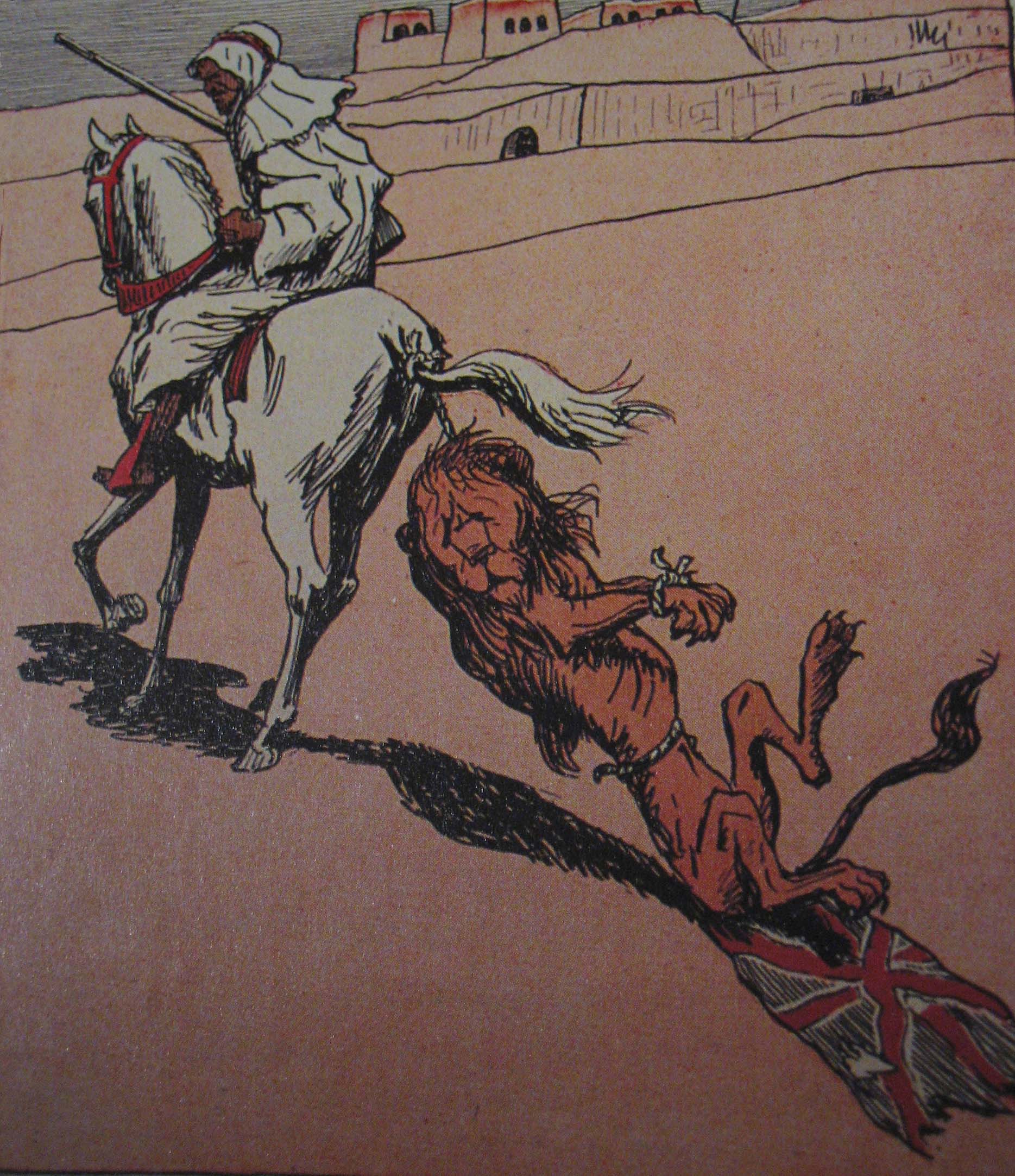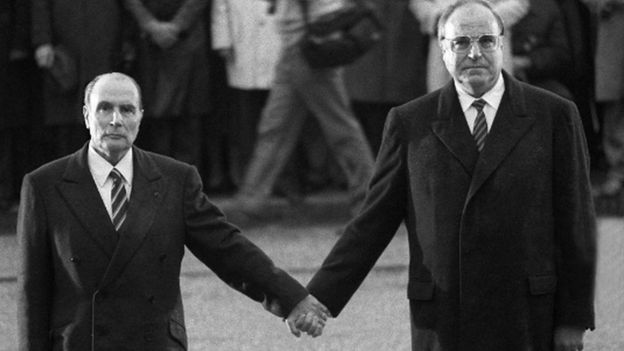
The BBC has just broadcast a piece of Muslim agitprop that would not look out of place on an Islamic State website intent on whipping up Muslim anger and discontent in order to feed the narrative of Muslims under siege and an Islam under attack by the West. The BBC is feeding the recruitment of Muslims to terrorist organisations with a hugely dishonest film that is deliberately shaped to mislead and feed into the Muslim grievance culture that leads to ‘radicalisation’.
The title of the film, United States of Hate: Muslims Under Attack, immediately tells us what picture the BBC intends to paint..it is a picture that extremist groups like Cage and MPACUK and the MCB would be proud of.
America is, the BBC informs us, in the grip of ‘anti-Muslim hysteria’, naturally it is all Trump’s fault, and we have to ask, apparently, ‘Is it normal to label a whole communtiy as terrorists?‘ The BBC of course has no problem labelling the whole of America (sans Muslim) as irrational, Islamophobic hate-mongers in this film. And does ‘America’ label a ‘whole community’, and does it label them ‘terrorists’ or just radicals who seek to impose Islam upon the US?
Who does the BBC get to represent ‘America’? They chose the most extreme group they could find, a tiny group of protestors, maybe numbering 5 in total, who confront Muslims outside Mosques and who carry guns…as self-protection…the likelihood they will be attacked is high. In contrast the BBC puts up a smiley, clean-cut Imam who is all peace, love and tolerance…at least whilst the cameras are on him….but if you listen to his ‘message’ you realise he has the usual passive-aggression and heavily promotes the idea of Muslims as victims under attack…so quietly stirring up tension and conflict whilst appearing to talk peace and tolerance.
He tells us that Muslims suffer systematic dehumanisation by the Media, commentators and reckless politicians. On his phone he has an image of a black man, Allen Brooks, who was lynched in 1906 and he exploits this image saying it is a portent of things to come for Muslims in America…he pushes the idea that Muslims will be lynched and that essentially Muslims will suffer a new Holocaust. As said, hardly a message of peace and tolerance…more Malcolm X than MLK.
Muslim community leaders such as this Imam know all the buttons to press to get the liberals to jump to their tune. The BBC has offered itself up as the platform for Islamists to exploit at will happily supporting their line about foreign policy and Muslims being the victims of government anti-terror policies (go figure why)..but not all are so easily fooled..or so willingly fooled as BBC journalists are…from the Mirror…
AS the country vexes itself over how to deal with the radicalisation of British-born Muslim youths, it’s revealing to know some of their leaders believe they have the answer.
The introduction of Sharia Law in Britain along with important religious days in the Muslim calendar becoming public holidays for followers of the faith should do the trick, or so claims the secretary general of the Union of Muslim Organisations in the UK and Ireland.
As Dr Syed Aziz Pasha says: “If you give us religious rights we will be in a better position to convince young people that they are being treated equally along with other citizens.”
This sounds perilously close to blackmail. Thus far the British people have shown exemplary tolerance in the face of terrorist threats.
Muslims are in an even greater state of denial than the rest of us about terrorism: “It’s hyped up”, “The government hates Muslims and so does Tony Blair” and “Muslims feel like there is an underlying agenda against us,” are a selection of comments from Walthamstow in East London, the neighbourhood targeted by anti-terror raids last week.
Anyone would think they’d forgotten the banners at a demo, just a few miles down the road, last February which read: “Europe You’ll Come Crawling When Mujahedeen Come Roaring”.
It’s unfashionable to say it, but some of us are beginning to find the Muslim victim culture a little tiresome.
And Dr Pasha’s words have not helped. If you were cynical you might even believe he was trying to provoke a fight.
Ditto the group of prominent Muslims who penned an open letter suggesting Muslim youths are alienated by Britain’s foreign policy, so it should be changed.
Why exactly? To placate a handful of home-grown terrorists and terrorist sympathisers?
In other words the rest of us can only be safe if THEY get a foreign policy that suits them. The Mafia would call this extortion. Give us what we want and we’ll do our best to stop the baddies blowing you up.
Nor should we feel it necessary to beat ourselves up because willing recruits, who happen to be born here, have signed up to become human bombs.
Some people, John Reid reminded us last week “just don’t get” the seriousness of the threat facing the West.
What will it take to understand? Ten planes destroyed and thousands of innocents dead while the family of the perpetrators weep into the cameras and say, “he wouldn’t do a thing like that”.
Oh yes he would. And believe me, he will.
Muslim terrorism and Islamist supremacy…the result of Islamophobia?
The good, tolerant, peace-loving Imam proclaims that Muslim violence has nothing to do with Islam and Muslims…it is the fault of the Islamphobes...they do the work of the Islamic State in promoting an idea of the Clash of Civilisations…not sure Islam can be described as ‘civilised’ in this day and age. Apparently Islamophobes create mass Islamic terrorism. So complain about 9/11 and you’re creating terrorism by upsetting Muslms who think Islam is being attacked…never mind 9/11 was an Islamic attack on America, on the West and its culture, values and beliefs…a declaration of war.
And Allen Brooks? Does his lynching represent the heart of America? Not really. The due legal process was being carried out and he was being protected by the Police from the mob. Why was there a mob? Because he was accused of abducting and sexually abusing a 3 year old girl. Not as if similar mobs don’t happen in the UK today for such suspects. The mob threw him through a upper-floor court window, which probably killed him, and then strung his body up from a gantry across the street.
He was not lynched because he was a blackman…it was because of the supposed crime he committed…so to jump from that analogy and use it to suggest any Muslim walking down the street will suddenly be jumped upon and lynched is deliberately dishonest and intended to be inflammatory and sensationalist…The Imam intends to create an atmosphere of fear amongst his own community that he can take advantage of as well as feeding into the Liberal guilt that he knows will result in the surrender of evermore power and influence to the likes of him and an ever greater role for Islam in America.
The BBC laps this message up unquestioningly. However the message from the anti-Islam protestors is scorned. As they stood protesting on the sidewalk and some car-drivers tooted their horns in support the BBC’s man said ‘I am shocked by the support of the passers-by….this is the silent majority making themselves heard.’ Well, no, it’s just a few car-drivers…but yet again the BBC pushes the notion that the ‘whole of America’ hates Muslims…and all without any reason.
As he spoke to a woman who organised the Muhammed Art Exhibition where two Muslims tried to shoot people he exclaimed ‘Do you realise how offensive such an art exhibition would be to Muslims?’ Apparently 9/11 and all that is not offensive to Americans, Americans aren’t allowed to be angry….but offend Muslims and, the BBC seems to be suggesting (ala Tim Wilcox), you can be jusitifiably killed.
There is no attempt to examine the case of those who raise doubts about Islam and the intentions of Muslim lobby groups in America. It’s not hard to find good reason for their doubts….though the BBC doesn’t even mention 9/11 in this film or the many other examples of Islamic terrorism in the US…limiting itself to a mention of San Bernardino…though this of course was done by non-Muslim extremists who don’t in any way represent the Muslim community. Got it?
One question might be ‘Just how many American Muslims cheered 9/11 and subsequent attacks such as Fort Hood?‘ Many cheered 9/11 in Britain, in France many cheered the Paris attacks and America and the West is hated by Muslims worldwide.
In 1996 Osama Bin Laden declared war on America and American civilians.
We know that the Muslim Brotherhood is intent on Islamising America (and the world)…
The Brotherhood’s 29 likeminded “organizations of our friends” that shared the common goal of dismantling American institutions and turning the U.S. into a Muslim nation. These “friends” were identified by Akram and the Brotherhood as groups that could help convince Muslims “that their work in America is a kind of grand Jihad in eliminating and destroying the Western civilization from within and ‘sabotaging’ its miserable house by their hands … so that … God’s religion [Islam] is made victorious over all other religions.”
We know that the Islamic State has made serious inroads into the US…
Federal prosecutors have charged 85 men and women around the country in connection with the Islamic State. So far, 33 have been convicted. Men outnumber women in those cases by about 7 to 1. The average age of the individuals is 27. One is a minor. The FBI says that, in a handful of cases, it has disrupted plots targeting U.S. military or law enforcement personnel.
We know that there are many Muslim organisations that are fronts for Islamist activity…
Islamic extremists have developed a sophisticated network of interconnected organizations across America. The following are profiles of these organizations and the people behind them. The common thread among these organizations is their ideology of Political Islam which aspires to implement sharia governance and to establish a global Islamic caliphate.
We know that supposed ‘moderate reformer’, Tariq Ramadan, is in fact an Islamist from the Muslim Brotherhood (which he never admits) and that he has a message for Western Muslims…Muslims must not adapt to the West, the West must adapt to Islam. The BBC naturally is onboard with Ramadan’s message.
Looking at all that you can see why many Americans may have questions about the presence of Muslims and Islamic groups in America…just what are they aiming to achieve?
The film-maker does in fact broach the subject…out of 55 minutes he gives over a whole 3 minutes to ‘exploring’ the Islamist cause…or does he? The unnamed Islamist is allowed to justify his Jihad without challenge to his narrative…it is the same one of course that the BBC peddles….Muslims are victims of Western foreign policy (so often Muslim friendly), innocent Muslim civilians are being killed (hmm…the vast, vast majority killed by Jihadists just like the speaker), the West supports corrupt dictators (and gets rid of them….Saddam and Gaddafi) and some of his friends were killed by drone strikes (friends? As in terrorists?). He states that Sharia is the way forward for America and that Jihad is in the Koran and is also the way forward. Despite that the BBC man finishes with the conclusion that the Jihadist denounces all violence. Nothing like a bit of wilful blindness. Then it was back to the ‘orrible Rednecks.
The film-maker deliberately misleads viewers by producing supposed examples of how Muslims are being persecuted in the US. The first was the infamous Clockboy whom we were told was wrongly arrested for bringing his science project to school….firstly it wasn’t a school science project, it was his own little project and it looked exactly like a bomb…and he ignored advice not to show it to teachers…he even set the alarm off in class. One might suspect this was a deliberate scheme to get himself arrested and then shout to the world about Muslims being persecuted.
The BBC then told us that a Muslim family had been targeted in a hate crime, killed by a man who hated Muslims, when in fact we know that the killings were the result of a neighbourhood dispute about parking and that the man had frequently threatened other, non-Muslim, neighbours.
Why does the BBC present these cases as evidence of Muslims being targeted when that is just not the case? The BBC is fabricating a story and a narrative of Muslim victimhood that feeds the Islamist’s own recruitng narrative and ends up in more terrorism.
The BBC has spent years reinforcing the idea of Muslims and Islam under attack and has bolstered that narrative with the constant presence on the BBC of Islamists from the likes of Cage, MPACUK, the MCB and of course Mehdi Hasan and disturbingly has sought to undermine the British war effort and tried to back the Islamist attempts to deligitimise the government’s anti-terror programme Prevent. This is the BBC that told us the Boston bombing was the work of white supremacists, that the massacre of US soldiers at Fort Hood by a Muslim was a ‘senseless tragedy’ unrelated to Islam, that the rapes and sex abuse in Cologne were the result of a right-wing plot, that Jews in Europe could justifiably be killed because of whatever Israel does, that Christians are thriving in the Muslim world, that there is no problem with immigration into Europe of people who have a totally different belief system and values to the West, this is the BBC that told us the Trojan Horse plot was hoax, the result of paranoia, Islamophobia and racism…and that the investigations found no cause for concern….and failed to reveal that the MCB, which is the most representative body for Muslims in Britain, was at the heart of this plot to Islamise British schools. This is the BBC which produces endless programmes that are intended to tell us of the brilliance of Islam and just how wonderful Muslims are, or how under attack they are. We have Anne Robinson dressed in a Burkha roaming the streets of London…presumably to show us how much Muslim women suffer abuse and we have a programme on the Silk Road which you might think would concentrate on China but in fact the first programme started off waxing lyrical about Muslim influences in Venice….and of course was scathing about the malign actions of westerners along the route. This is the BBC that, on the first anniversary of 7/7, arranged for a Muslim with a backpack to walk through the preparations for the memorial at a London Train station and then accused people of Islamophobia for staring at the man…this was supposedly an example of how innocent Muslims are treated with suspicion….one year after bombs went off in train stations, bombs carried in backpacks by Muslims….and the BBC wonders why people were scared?
The BBC, still a hotbed of marxists and trots intent on undermining the West and selling us out to whichever enemy is nearest and most likely to succeed? You might get that impression if you ever started to view the BBC’s output as a whole and saw the message being peddled.
The BBC, a mouthpiece for the likes of the Islamic State? In the end, yes, Lord Hall Hall leads an media organisation that cheerleads for a terrorist organisation that literally threatens the world.










